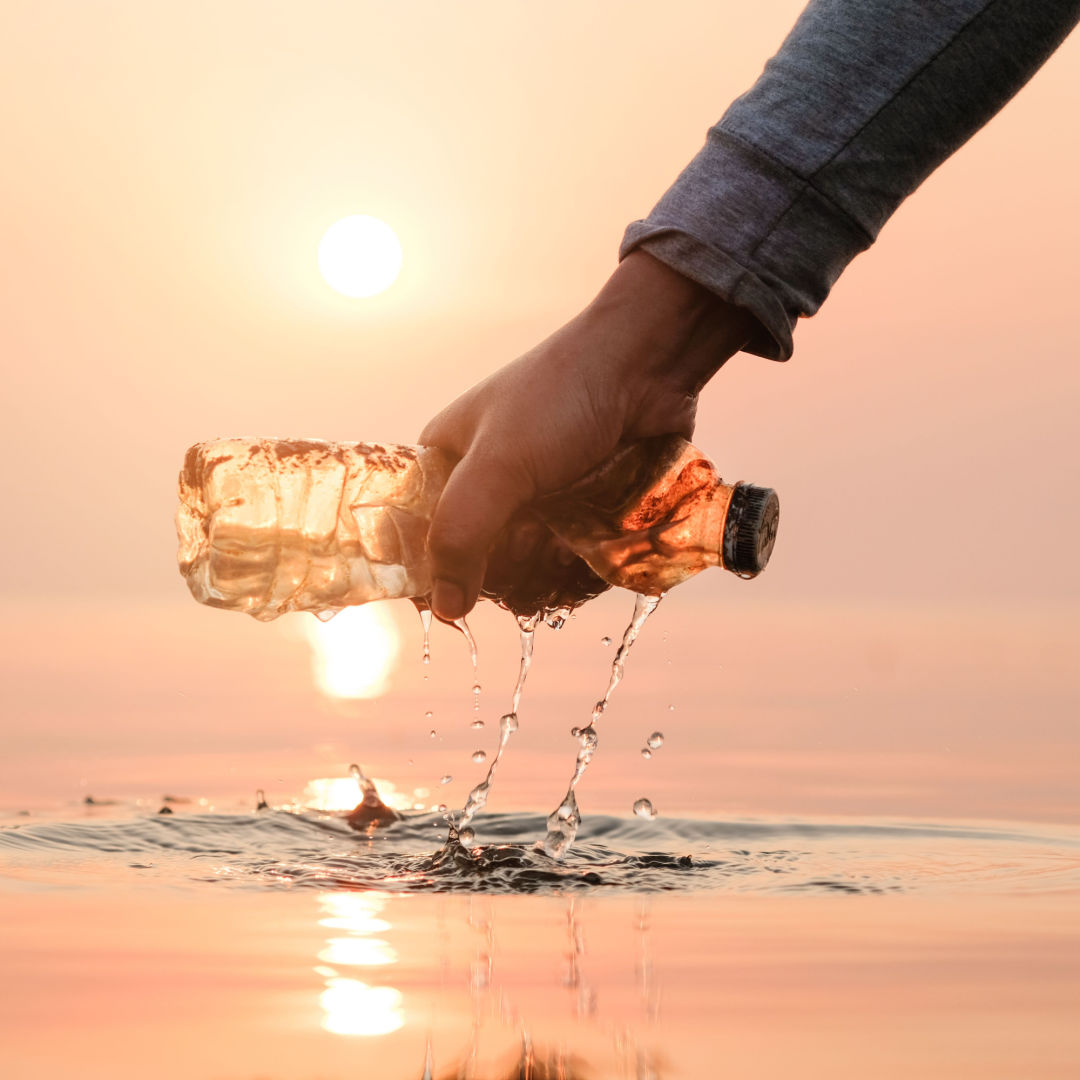Plastic Bottle Waste in Oceans
Did you know that every sixty seconds one million plastic bottles are purchased worldwide? And let’s be honest; they’re often used once, (are sometimes only halfway consumed) before being thrown away in the trash, without a thought. While single-use bottles are undoubtedly convenient, the waste of single-use plastic bottles is creating serious problems for the world’s oceans, and subsequently for marine animals, birds, and humans. Read on to learn more about the problems and solutions to plastic bottle waste in our oceans.
Significant Waste in the Oceans
Did you know that plastic bottles are the second most common type of plastic waste found in the oceans? According to Forbes, in a recent 2021 study published in the journal, Nature Sustainability, plastic bottles account for 12% of all plastic waste in the world’s oceans. Wondering how plastic bottles end up in our oceans? Unfortunately, fewer than half of the plastic bottles purchased are collected for recycling, and just 7% of those collected are turned into new bottles. With no clear alternative, plastic bottles end up in landfill or in the ocean.
What’s most alarming is that plastic waste outnumbers fish in the ocean today! An incredible thought. Accordingly, Conservation.org estimates that by 2050, ocean plastic will outweigh all of the ocean’s fish, not only in number but also by weight. At present, 12 million metric tons, or 26 billion pounds of plastic waste (the equivalent of more than 100,000 blue whales) is dumped into the oceans, each and every year!
Plastic Bottles in the New Era: The Plastisphere
Thanks to the fact that plastic waste is found everywhere in the natural environment, our current geological era has a new subdivision, a marine microbial habitat called the “plastisphere”.
How did we get here? You may be surprised to learn that it happened rather quickly. Even though plastic bottles were invented in the mid-19th century, it was between the 1970s and the 1990s when plastic waste more than tripled, due to increased dependence upon plastic bottles and plastic bags. By the early 2000s, the amount of plastic waste generated rose more in a single decade than it had in the previous 40 years. According to the UNEP, if historic growth trends continue, global production of primary plastic is forecasted to reach 1,100 million tonnes by 2050! We may be swimming in seas of plastic…
Plastic Bottles Are Endangering Animals & Humans Alike
Turtle Island Restoration Network states, tens of thousands of vulnerable marine animals have been observed suffering from either entanglement or ingestion of plastic waste. Experts have found plastic in the guts of more than 90% of seabirds, in the stomachs of over half of the world’s sea turtles, and have been seen tangling and choking whales, sharks, and other marine mammals.
More significantly, plastic bottles, the second most prevalent form of plastic waste, pose health threats to human beings. After all, plastic items never fully disappear; they just break down into smaller and smaller pieces. Such tiny pieces, otherwise called microplastics, can enter the human body through inhalation and digestion. Once inside the human body, microplastics are absorbed and accumulated in organs, including but not limited to lungs, livers, spleens, and kidneys. A 2021 study recently detected microplastics in the placentas of newborn babies. While the full extent of risk is still unknown, substantial evidence may reveal countless health concerns. Read here for more information on plastic bottles containing Endocrine Disrupting Chemicals (EDCs).
What Can We Do To Help?
The good news? Solutions are varied! For starters, you may consider cleaning a beach. If you live near a coastline or riverway, join beach or river clean-ups in your area, or simply take your family along to start your own clean-up project. In addition, you can shop sustainably, only choosing foods without plastic packaging, and always being certain to carry a reusable bag with you. Ultimately, you’ll want to refuse single-use plastics. Avoid purchasing plastic water bottles and pack your own reusable drinking bottle! Looking for the right one? Look here.
Last but not least, ditch your 5-gallon plastic water jugs, and invest in bottleless water solutions. Many schools, office buildings, medical facilities, hotel chains, and large companies have started the trend, and it is gaining speed. Optimum Water Solutions alone has helped to avoid 23,750,000 plastic bottles to date, serving 7 states and 29 locations across the East. If you are in Florida, North or South Carolina, Georgia, West Virginia, Pennsylvania, or Massachusetts, consider contacting a sales representative to learn how you can help save our oceans from plastic water bottle waste. Clearly. Pure. Water.



